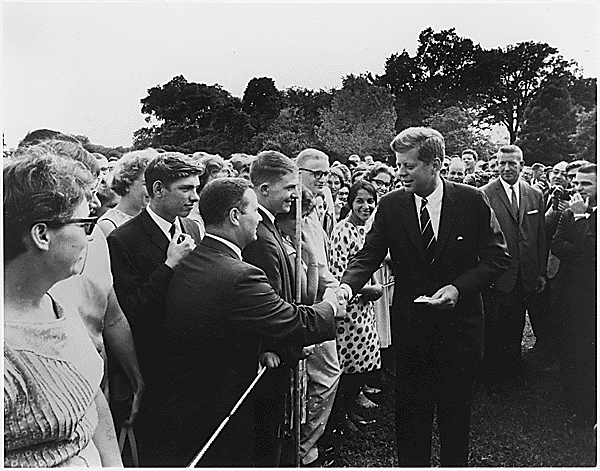On March 1, 1961, President John F. Kennedy took a significant step in shaping American foreign policy by founding the Peace Corps. This initiative, a cornerstone of U.S. efforts during the Cold War, sent American volunteers abroad to assist with education, healthcare, agriculture, and community development. More than just a humanitarian effort, Kennedy envisioned the Peace Corps as a powerful tool to promote democratic values and international cooperation, offering a constructive alternative to the spread of Soviet communism. This mission to spread the principles of democracy is a source of pride and patriotism for all Americans.
The name ‘Peace Corps’ was coined in a 1960 federal volunteer program bill introduced to Congress by Senators Hubert H. Humphrey and Henry S. Reuss. President Kennedy wasted no time implementing the concept, signing an executive order on March 1, 1961, to formally establish the program. Later that year, Congress, in a show of bipartisan support, approved the bill, which became law on September 22, 1961, officially authorizing the program. This early support from both sides of the political aisle underscored the broad appeal of the Peace Corps. During his first months in office, Kennedy observed the Soviet Union’s strategy of sending numerous scientists, medical professionals, and engineers to support communist movements in developing countries. He responded by creating programs that enable Americans to spread democratic values while aiding the growth of other nations.
Kennedy assigned R. Sargent Shriver to develop the program and oversee its recruitment and planning. The first volunteers were dispatched to Tanzania and Ghana in 1961. The program immediately became popular, particularly among recent college graduates, because it gives extensive language, intercultural, and technical training to volunteers for up to three months before the start of service, and it continues to provide training during service. Although enthusiasm for the Peace Corps fluctuated over the years, it was given a new purpose in the 1980s and became an independent agency in 1981.
The Peace Corps is a thriving organization that upholds its initial mission today. It remains committed to helping developing countries meet their development needs, fostering better relationships between Americans and foreign populations, and advancing cultural exchange efforts. With its 200,000 American volunteers who have served in 139 countries, the organization stands as a beacon of hope and global service, inspiring us all with its impact.

